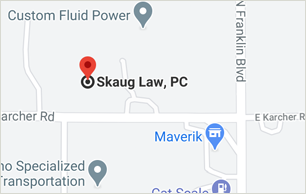What Happens If I Lose My Job While on Workers’ Comp?
Last updated Thursday, September 19th, 2024

If you lose your job while on workers’ comp, will you still get benefits? What should you do next? This article explains everything you need to know about what happens if I lose my job while on workers comp.
Key Takeaways
- Termination while on workers’ compensation is limited by laws preventing retaliation, but employers can terminate for performance issues or inability to perform job duties due to injury.
- Workers’ compensation benefits can continue after termination, ensuring coverage for medical expenses and possibly wage replacement, depending on circumstances.
- Taking immediate action, such as consulting a workers’ compensation attorney, is crucial if terminated while on workers’ comp to protect your rights and benefits.
Have You Been Injured at Work?
Get Your Free Injury Case Review
Hire an experienced workers’ compensation attorney who knows what needs to be done. The minute you sign with Skaug Law – we start working.
Termination While on Workers’ Compensation
Being terminated while on workers’ compensation can feel like a double blow — you’re already dealing with a work-related injury, and now you’re facing unemployment. Understanding that employers cannot legally fire you solely for filing a workers’ compensation claim is crucial, but termination can still happen in certain situations. For instance, if you’re unable to perform your job duties due to your injuries, your employer may legally terminate your employment.
Performance issues that existed before your injury could also lead to termination, unrelated to your workers’ compensation claim. Employment contracts may also include specific terms that allow for termination while you’re receiving workers’ compensation benefits. Reviewing your employment contract to understand your rights and obligations is essential.
Employers are legally barred from firing employees in retaliation for filing a workers’ compensation claim. This protection ensures that injured workers are not unfairly targeted for exercising their rights. If you believe your termination was retaliatory, you may have grounds for a legal claim against your employer.
An employer is not obligated to retain an employee who cannot fulfill their job duties due to a permanent disability. Thus, if your injury results in a permanent inability to perform your job, your employer may lawfully terminate your employment. Navigating the challenging situation of termination while on workers’ compensation becomes easier by understanding these nuances.
Continuation of Workers’ Compensation Benefits After Termination
One of the most pressing concerns after losing your job is whether you will still receive workers’ compensation benefits. The good news is that termination does not necessarily mean the end of your benefits. Medical bills related to your work injury will continue to be covered by the insurer, even if you are no longer employed. This means you can still receive medical treatment and care for your injury.
Workers’ compensation benefits, including wage replacement and medical benefits, can continue after termination. If you have reached a settlement or award for a permanent disability caused by your injury, your entitlement to this workers’ compensation coverage remains intact. Maintaining work status notes from your doctor is crucial for continuing to receive lost wage benefits and ensuring your workers’ compensation insurance is valid.
Even if you resign while receiving workers’ compensation benefits, your medical and possible wage replacement benefits can continue. In some cases, workers’ compensation benefits may last for years or even a lifetime, depending on the terms of your settlement. This ongoing support can provide the financial stability needed to focus on your recovery.
Knowing that benefits can continue after termination provides a sense of security. Knowing the specific steps to take if you are fired while on workers’ comp is essential.
Steps to Take if You Are Fired While on Workers’ Comp
Upon termination while on workers’ compensation, taking immediate and strategic steps is vital to protect your rights and benefits. First, inquire about the specific reasons for your dismissal. Knowing why your employer fired you can provide clarity and help you determine whether your termination was lawful. Document everything, including written communications, as these records can be invaluable if you need to contest your termination.
Consult a workers’ compensation attorney promptly. Seek legal advice immediately if you feel pressured to resign. An attorney can help you navigate the complexities of workers’ compensation laws and ensure your rights are protected. Even if your compensation claim is denied, pursuing a retaliation claim may still be possible depending on state laws.
If you feel forced to resign, this may also constitute retaliatory action. Retaliation can include demotions, pay reductions, or changes in job responsibilities, in addition to termination. Consulting a workers’ comp lawyer as soon as possible can provide the necessary support and guidance during this challenging time.
Knowing the steps to take if fired while on workers’ comp helps protect your benefits and explore potential legal remedies. Next, we’ll discuss how quitting your job can impact your workers’ compensation benefits.
Impact of Quitting on Workers’ Compensation Benefits
Resigning while on workers’ compensation can significantly affect your benefits. If you quit during your healing period, you may lose your temporary disability benefits. Additionally, refusing a suitable job offer from your employer can lead to the termination of temporary total disability benefits. Carefully consider the timing and reasons for quitting your job.
Permanent partial disability benefits may still be available after quitting, depending on medical opinions. Medical expenses related to your work injury can still be claimed even after leaving your job. However, if you quit after reaching maximum medical improvement, future wage loss benefits may be denied if your condition worsens.
Quitting for non-medical reasons can make it challenging to claim retraining or loss of earning capacity benefits. There may be increased scrutiny and difficulties proving claims after quitting. If you quit due to a work injury, you must demonstrate that the injury was the reason for your resignation. Knowing these potential impacts aids in making informed decisions about your employment and benefits.
Filing a New Workers’ Compensation Claim After Termination
Discovering a work-related injury after termination still allows for filing a new workers’ compensation claim. Start by filing a written report of the injury as soon as possible. Support your claim with medical records, witness statements, and incident reports. The burden of proof lies with you to demonstrate that the injury is job-related.
Employers may argue that your claim is invalid because you did not report the injury while employed by your former employer. Engaging in activities against company policy at the time of injury can also complicate your claim. A workers’ compensation attorney can help strengthen your post-termination claim and ensure timely filing.
These steps can increase your chances of a successful claim, even after losing your job. Next, we’ll explore the importance of consulting a workers’ compensation attorney.
Consulting a Workers’ Compensation Attorney
The complexities of workers’ compensation laws can be daunting, especially after job loss. Hiring a legal expert in workers’ compensation can help you secure the benefits you are entitled to from an insurance company. An experienced attorney can expedite the claims process, ensuring you receive benefits more quickly.
Having legal representation ensures your rights are upheld during negotiations or in court. Workers’ compensation attorneys can appeal denied claims by presenting new evidence and arguments effectively. They assist in gathering essential documents, like medical records, to strengthen your claim.
The guidance of a workers’ compensation attorney makes understanding the available benefits easier. A legal expert provides the support and expertise needed to navigate the often-complicated landscape of workers’ compensation.
Frequently Asked Questions
Can my employer fire me while I'm on workers' compensation?
Your employer cannot legally fire you just for filing a workers’ compensation claim. However, they can terminate your employment for valid reasons unrelated to your claim, such as job performance or your ability to perform your duties.
Will I still receive workers' compensation benefits if I'm terminated?
Yes, you can still receive workers’ compensation benefits, including medical expenses, even if you are terminated. Your eligibility for benefits is typically unrelated to your employment status.
What should I do if I'm fired while on workers' comp?
If you’re fired while on workers’ comp, document the reasons for your dismissal and consult a workers’ compensation attorney immediately to understand your rights and options. Taking these steps can help protect your interests.
How does quitting my job affect my workers' compensation benefits?
Quitting your job can lead to the loss of temporary disability benefits and may subject your claims to increased scrutiny. It’s essential to demonstrate that your resignation was directly tied to your work injury.
Can I file a new workers' compensation claim after termination?
Yes, you can file a new workers’ compensation claim after termination if you discover an injury post-termination. It’s advisable to gather supporting evidence and consult a workers’ compensation attorney for assistance.
Can my employer fire me while I'm on workers' compensation?
Will I still receive workers' compensation benefits if I'm terminated?
What should I do if I'm fired while on workers' comp?
How does quitting my job affect my workers' compensation benefits?
Can I file a new workers' compensation claim after termination?
Can my employer fire me while I'm on workers' compensation?
Your employer cannot legally fire you just for filing a workers’ compensation claim. However, they can terminate your employment for valid reasons unrelated to your claim, such as job performance or your ability to perform your duties.
Will I still receive workers' compensation benefits if I'm terminated?Yes, you can still receive workers’ compensation benefits, including medical expenses, even if you are terminated. Your eligibility for benefits is typically unrelated to your employment status.
What should I do if I'm fired while on workers' comp?If you’re fired while on workers’ comp, document the reasons for your dismissal and consult a workers’ compensation attorney immediately to understand your rights and options. Taking these steps can help protect your interests.
How does quitting my job affect my workers' compensation benefits?Quitting your job can lead to the loss of temporary disability benefits and may subject your claims to increased scrutiny. It’s essential to demonstrate that your resignation was directly tied to your work injury.
Can I file a new workers' compensation claim after termination?Yes, you can file a new workers’ compensation claim after termination if you discover an injury post-termination. It’s advisable to gather supporting evidence and consult a workers’ compensation attorney for assistance.


